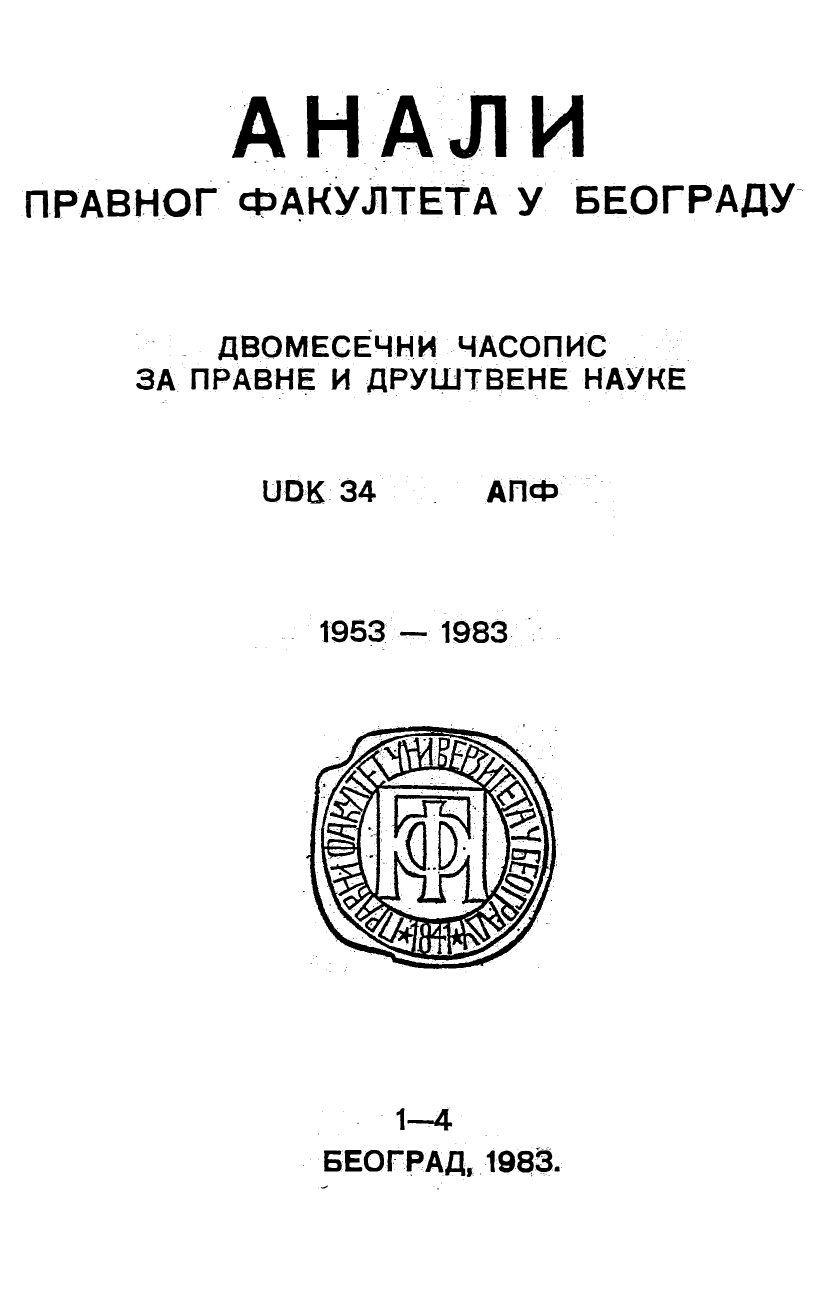САНКЦИЈА ОБИЧАЈА
THE SANCTIONING OF CUSTOMS
Author(s): Dragomir StojčevićSubject(s): Anthropology, Social Sciences, Customs / Folklore, Sociology, Social Norms / Social Control
Published by: Правни факултет Универзитета у Београду
Summary/Abstract: Although sactions are generally related to legal norms, there are no social norms without sanctions. The basis for the observance of all rules (norms) is the same — the endeavour to avoid unpleasant and unwanted consequences of implementation of sanctions i.e. the fear of those consequences. The sanction of customs in the clan-tribe type community are more strict and cruel than legal sanctions, while their character, procedure of application and the mechanism of coercion i.e. provocation of fear, are totally different. Although the observance of customs does not require a specialised „armed coercive body”, the non-observance of the same, in comparison with legal rules, is more infrequent, not only because the sanctioning of customs is more strict and cruel but also because the control (supervision) of the behavior of the individual is more effective, therefore, the factor of undiscovered behavior is less aprarent. The existential dependence on the genus and tribe creates fear of the most severe penalty — the expelling from community, which also has a religious aspect as well (the ancient Roman aquae et ignis interdictio — ban on the use of water and fire). Life in the community of several tribes in a federation of tribes establishes, instead of war, revenge or feud in blood-ultima sanctio. For the tribal mechanism of coercion, of special significance is the family, clan-genus and tribal solidarity in responsibility, aggression and defence, on the basis of existential dependence, demanding a strict internal control or supervision of the behavior of the individual. Religion is of great significance in this respect. Therefore, man does not observe customs because he is still pure, honest, honourable, and righteous, but because he is forced to such behavior by the complete, precise and all-present (at the same time invisible — without institutions — organs) mechanism of coercion. The customs of the Albanians in Kosovo, created and established during the flourishing of the genus (clan)-tribe type community, offers a number examples of this system of coercion.
Journal: Анали Правног факултета у Београду
- Issue Year: 31/1983
- Issue No: 1-4
- Page Range: 660-664
- Page Count: 5
- Language: Serbian

